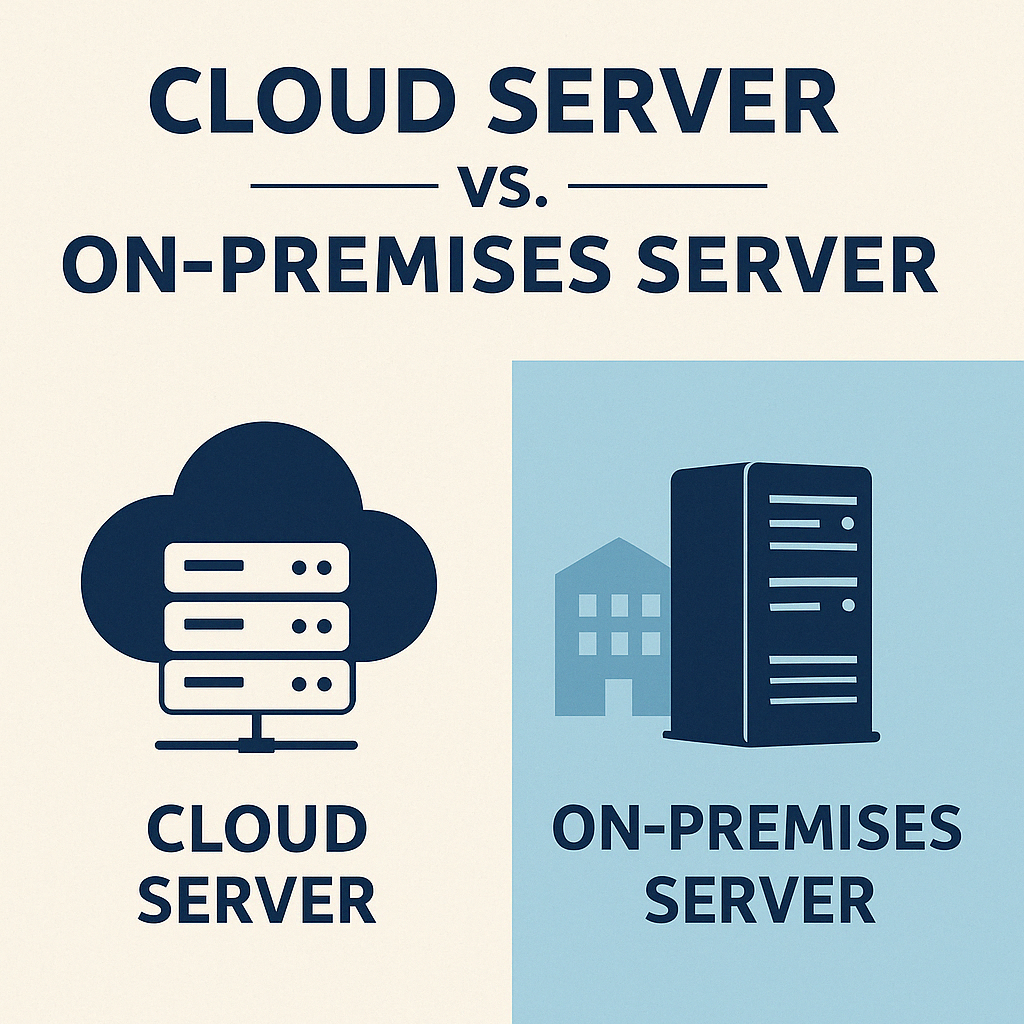Cloud Server vs. On-Premises Server – When Should You Move to the Cloud, and When Is It Better to Invest in Physical Infrastructure?
Guides

Many businesses eventually face the dilemma of whether to continue maintaining a physical server or transition to a Virtual Private Server (VPS) in the cloud. In this article, we’ll review the key advantages of cloud-based VPS compared to a physical server, and also highlight cases where investing in a physical server might still be the better option.
Before diving into the pros and cons, here’s a brief explanation:
Cloud Server (VPS): A virtual server running within a large-scale cloud infrastructure. Resources can be quickly adjusted—scaled up or down—and access is available from anywhere in the world.
Physical Server: A server owned and maintained by the organization, physically installed on-premise or in a dedicated data center. The server’s resources are fixed and require independent management and maintenance.
Flexibility and ScalabilityA cloud server allows you to easily adjust resources such as CPU, RAM, and storage in real-time based on the business’s evolving needs. For instance, during a marketing campaign or user surge, resources can be scaled up with a click.
Lower Operating CostsA physical server requires ongoing maintenance, including electricity, cooling, security, physical space, and dedicated IT personnel. In the cloud, all of these are managed by the cloud provider, and the business only pays for what it actually uses.
High Availability and ReliabilityCloud servers are hosted in secure data centers with high redundancy, automatic backups, and 24/7 professional support. Uptime is typically above 99.9%, significantly reducing the risk of downtime.
Enhanced Data SecurityCloud servers are equipped with advanced security technologies including firewalls, intrusion detection systems, and data encryption. The overall security level is much higher than that of in-house physical servers.
Operational ConvenienceYou can access a cloud server anytime, from anywhere, without being tied to a physical location. User-friendly control panels also allow less technical users to perform maintenance and updates with ease.
Financial EfficiencyA predictable monthly payment becomes part of the company’s fixed expenses, making cash flow management simpler. Unlike physical assets that depreciate, cloud servers are treated as operational expenses—often preferred by finance teams.
Despite the clear advantages of the cloud, there are situations where a physical server might be a better fit:
Regulatory Requirements and Sensitive DataOrganizations handling especially sensitive data—like banks or medical institutions—may prefer full control via a physical server. Local regulations may also require data to be stored within the country or on company premises.
Full Control and Ultra-High PerformancePhysical servers can deliver extremely high performance, especially for resource-intensive applications like real-time video editing, advanced graphics rendering, or high-frequency trading systems.
Long-Term InvestmentIf your business has predictable and stable computing needs for the long term, a one-time investment in a physical server can be more cost-effective over time.
Legacy Systems and Hardware CompatibilitySometimes older software (Legacy systems) is not cloud-compatible or requires specific hardware. In such cases, a physical server might be the only viable option.
Ask yourself the following questions to make an informed decision:
Do you need to frequently adjust resource capacities?
Is global and instant access to your server essential?
Do you have the expertise and manpower to maintain physical servers?
Is your business subject to specific regulatory requirements?
What level of performance and security is needed?
Your answers will help determine the best fit.
Migrating to a cloud VPS offers major benefits in flexibility, efficiency, security, and cost-effectiveness. However, for certain use cases—like strict compliance, high-performance demands, or legacy software—a physical server may still be the right choice.
Want to explore what’s right for you? Contact the experts at OMC Cloud and we’ll help you make the best decision.